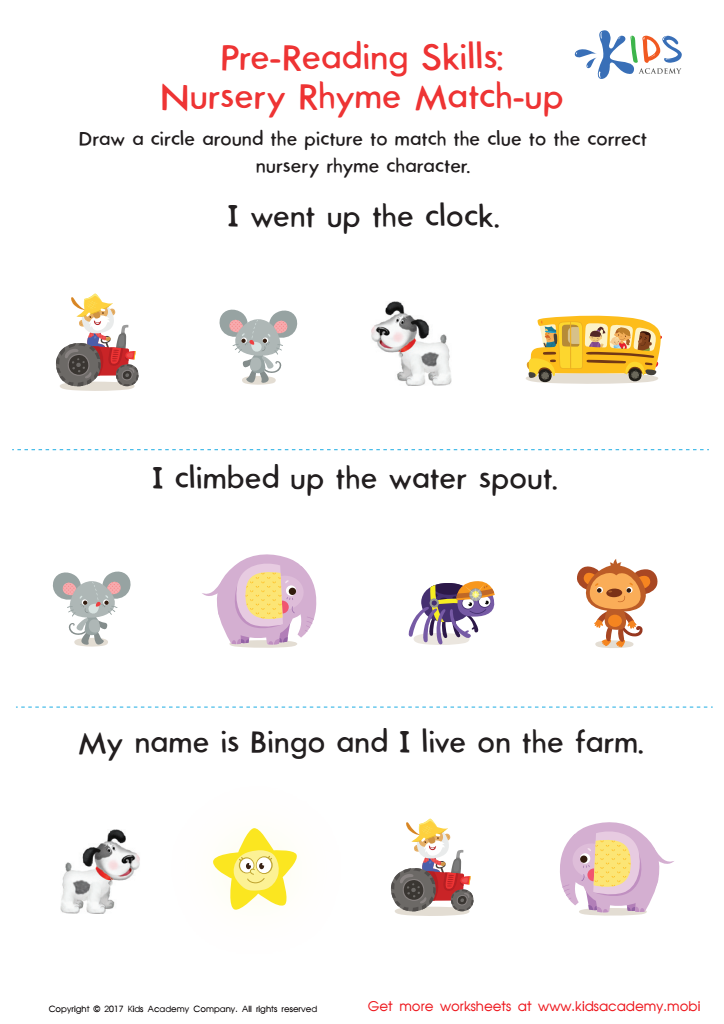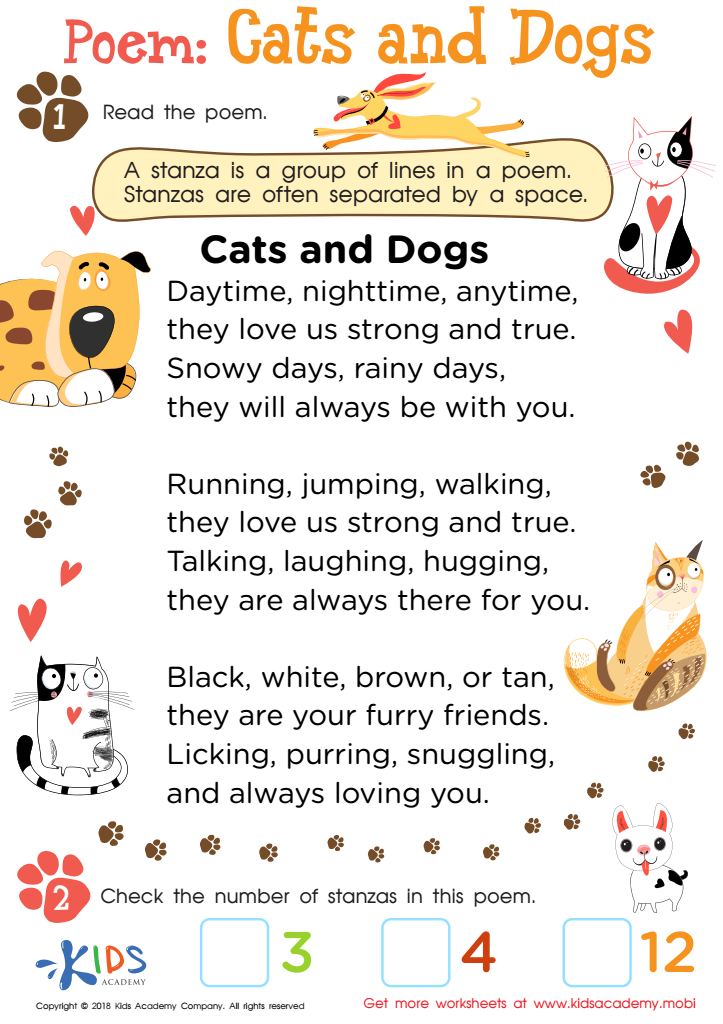Rhyme recognition Alphabet Worksheets for Ages 8-9
3 filtered results
-
From - To
Enhance your child's literacy skills with our engaging Rhyme Recognition Alphabet Worksheets designed for ages 8-9! These interactive worksheets promote phonemic awareness while encouraging children to explore sounds, patterns, and vocabulary through the fun of rhyming. By matching words, completing sentences, and identifying rhyming pairs, young learners will improve their reading and writing abilities. Each worksheet is designed to keep learning enjoyable and stimulating. Perfect for home, classroom activities, or as supplementary materials, our resources provide essential practice to build confidence and comprehension. Discover the joy of learning through rhymes and watch your child's language skills flourish!


Baa Baa Black Sheep Printable


Nursery Rhyme Match–Up Worksheet


Poem: Cats and Dogs Worksheet
Rhyme recognition and understanding the alphabet is crucial for children aged 8-9, and parents and teachers should prioritize it for several reasons. At this age, children are solidifying their literacy skills and building a strong foundation for more advanced reading and writing. Recognizing rhymes enhances phonemic awareness, which is essential for decoding words and promoting better reading fluency. When children can identify and create rhymes, they become more attuned to the sounds within words, leading to improved spelling abilities as well.
Moreover, rhyme recognition makes reading more engaging and fun. When children are exposed to rhymes through books and poetry, they develop a love for language that fuels their imagination and creativity. This enjoyment can motivate children to read more, further enhancing their literacy skills.
Teachers and parents also play a vital role in integrating rhyming activities into learning. Simple games, songs, and interactive storytelling can reinforce rhyme recognition in enjoyable ways. By fostering a playful learning environment, children gain confidence in their reading abilities. Ensuring that children master rhyme recognition and the alphabet in these formative years will ultimately foster lifelong literacy skills and a profound appreciation for language.

 Assign to My Students
Assign to My Students

















